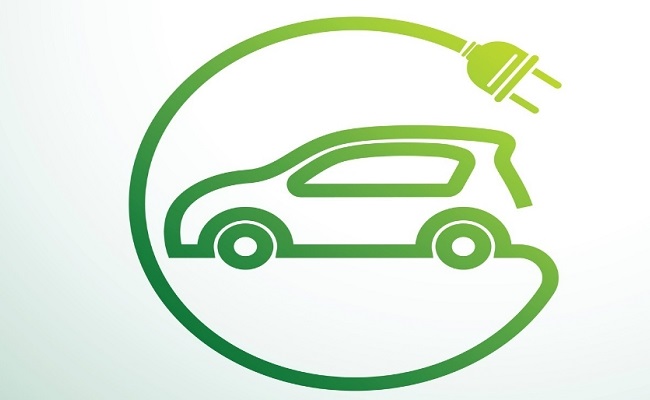
Gasoline prices touched an all-time high of $6 for premium lead at the retail outlets from Exxon to Shell to Luke Oil to BP in July this year but came down sharply to $5.59 at least in NJ alone compelling many automobile owners in the US to do a rethink on whether it's wiser to go for an Electric Vehicle (EV) in the long run.
Prices came down after Fed tax breaks and crude oil going below the $100 threshold limit.
Tesla has made a big dent in the automobile market and Toyota Prius does give awesome mileage at a mind boggling 40 miles to a gallon, but their cars are expensive. Tesla's price is about $50,000 minimum compared to Toyota, Hyundai, Honda, Ford, GM, Buick, Cadillac and even Lincoln are gas guzzling cars. Despite the price being high at the entry level, Tesla has attracted a lot of buyers as they have built up a huge network of chargers and many hotels such as Hilton have chargers in the parkway. A new Mercedes Benz E Class would cost you about $70,000 and a second hand one less than five years old $25,000 to S30,000.
A Tesla can give about 200 miles with each minimum 12-hour charge. That's like covering a distance from New Jersey to Ohio or from Rochester to Michigan, Troy.
Prices have come down a bit to about $5.50 for premium and $ 4.50 for ordinary ever since President Joe Biden slashed fed taxes on gasoline ahead of the November 8 midterm elections. Some relief for Americans as the US is a car country and public transport is very weak unless you inhabit big towns or cities like New York, Newport, Jersey City which have a good local suburban rail network called the NJ transit, or ferries or railroads and inter city buses.
Gas prices reached record highs as early as March, with an average price of $4.33 per gallon. And although prices have since taken a dip, experts warn that a combination of seasonal demand and rising oil prices could see gas prices make another surge in the near future, USA Today had then reported. With little hope for relief at the pump, you may be considering making the switch to an electric vehicle, says Business Insider.
At present, less than 1 per cent of the 250 million cars, trucks and SUVs on the road in the United States are electric, a rough estimate with dealers shows. In the US, average sales of new cars is anything between 17 to 18 million per annum, so, hence it's not an easy task for electric car makers like Tesla or Toyota (hybrid) to make a dent by increasing volumes of productions to bring down prices.
If people think the Russian-Ukraine war is going to stagger for more than a year, and sanctions by US and European oil embargo on Russia continues as part of sanctions, those considering making the switch to electric should first learn about the cost considerations that come with going electric, say dealers.
While it's true that Elon Musk built the world that allowed other automakers to introduce their own competitor EVs, Tesla is by no means yielding space. The EV OG continues to crank out the battery-powered cars that outsell the rest by an emissions-free mile, according to a noted automobile journalist Gabrielle Olya.
The Tesla Model Y sold 172,700 units in 2021, according to Car and Driver. The Model 3 sold 128,600. As a reference, the No. 3 Ford Mustang Mach-E sold just 27,140. Only one other model, the Chevy Bolt, sold more than 20,000 units and two of the top 10 sold fewer than 10,000 vehicles. Three of the top-10 bestselling EVs in America are Tesla's and all four Tesla models are in the top 12.
Electric vehicles are good in the long run as they pay you back in time in maintenance costs and saving on fuel costs though down payments are pretty much high. The upfront investment remains cost-prohibitive. The price of EVs has been falling, but even the electric segment has been swept away in the tide of inflation that has defined the auto industry since the spring of 2021. The average transaction price of an electric car is now $56,437, according to Kelley Blue Book (KBB), which is about $10,000 more than the industry average.
Of course, there's a pretty big spectrum. Consumers now have more options for electric vehicles with over 30 battery and plug-in hybrid offerings in the US, according to automobile expert Matt Teske. The Porsche Taycan Turbo S Cross has an MSRP of $187,600, but options like the Nissan Leaf and Mini Cooper SE go for under $30,000.
Many reasons impact the rate for your electric car loan, Charageway founder CEO Matt Teske -- who has both owned and leased electric vehicles -- said that "the process has been no different than buying a gas-powered vehicle".
There is one difference that could lower the cost to own an electric vehicle, however. Some banking institutions and credit unions offer special financing discounts and incentives for customers who choose fuel-efficient vehicles, says Olya.
Bank of the West, for example, offers a rate discount of up to 0.5% for the purchase of qualifying electric vehicles. People hungry to get rid of their gas-guzzlers might be quick to ignore the fact that electricity prices can vary more than gas prices. The cost to power an electric vehicle can depend on several factors, however, not just current electric rates.
On average, it costs half as much to drive an electric vehicle, according to the U.S. Department of Energy -- and that's presuming a cost of $2.85 per gallon. But with gas prices now averaging over $4, the savings could be significantly more, despite the variability in the cost to power an EV. At Energy.gov, the eGallon tool compares the two by state, using average gas prices and residential electricity prices. In states like Arkansas, you can power an EV for less than $1.
The average cost of charging an EV varies from station to station. Some public stations even let you charge for free. There are also electric charging station chains, like Electrify America, which offer different charging rates depending on whether or not you are a member. The average per-minute rate for charging without a membership is $0.43 per kWh or $0.31 for members.
So how about installing a charger at home: Definitely charging at home is cheaper than public charging, according to Forth, a nonprofit that promotes electric mobility. It's also more convenient, which is why 90 per cent of charging takes place at home overnight. It costs an average of $800 to install a charging station. Select energy providers offer discounts. Alliant Energy offers Wisconsin and Iowa customers up to a $500 rebate for purchasing and installing a Level 2 home charging station.
What about maintenance costs of an EV vs Petrol or Diesel driven car? EVs have more software and electronics to handle than moving parts as in a conventional gas driven automobile. EVs generate less heat, and don't need motor oil, which makes them cheaper and easier to maintain than the conventional gas-powered cars. "One of the most interesting savings in maintenance costs with an electric vehicle is the brakes."An electric vehicle can use the electric motor to slow itself down, reducing the need to use a traditional brake pedal. This extends the life of the brake pads and rotors on an electric vehicle.
A gas-powered car simply cannot do that. This process is known as regenerative braking. Don't you forget though -- electric vehicles will require some maintenance costs that you're familiar with, such as fixing windshield wiper blades and tire rotation.
Overall, however, maintenance costs are typically low. On the higher end of estimates, a Tesla will cost about $282 a year to maintain, according to Motor 1. For comparison, the average annual maintenance costs for a BMW i8 add up to $979.
Electric vehicles can save your money but certainly not on insurance costs. An EV might cost you more in terms of insurance entirely linked to your driving history.
But Teske said he has not seen a difference in price to insure his Chevy Volt. In fact, he said safety features that some electric models have could make insurance cheaper in some instances. In the past, for example, the Tesla Model S has received some of the best safety ratings, which are some insurance companies' reference when gauging a vehicle's safety and cost to insure.
There's another factor to consider with auto insurance. According to Allstate, the installation of a vehicle charging station may alter your home insurance policy. For example, Oregon and California require some homeowners and condo owners to have liability coverage.
The average purchase price for an electric vehicle is higher than the average cost for a gas-powered car, but you have to also factor in the tax credit you'll be eligible for, which brings the purchase price down. All-electric and plug-in hybrid cars purchased new may be eligible for a federal income tax credit of up to $7,500. The credit amount will vary based on the capacity of the battery used to power the vehicle, according to the US Department of Energy. You may also be eligible for state and/or local incentives depending on where you live.
They say an automobile starts depreciating in value the moment it's driven out of the showroom. Out of the showroom, its resale value comes down by 10 per cent and almost 30 per cent YoYr. On the contrary electric vehicles tend to depreciate in value quicker than gas-powered vehicles and that's a surprise, according to Car and Driver. This is due to their higher cost compared to comparable gas-powered cars.
According to Drive Electric Colorado, however, that rule doesn't apply to all models. Most notably, Tesla's are known for holding their value -- and Tesla sells more EVs than all the rest.













